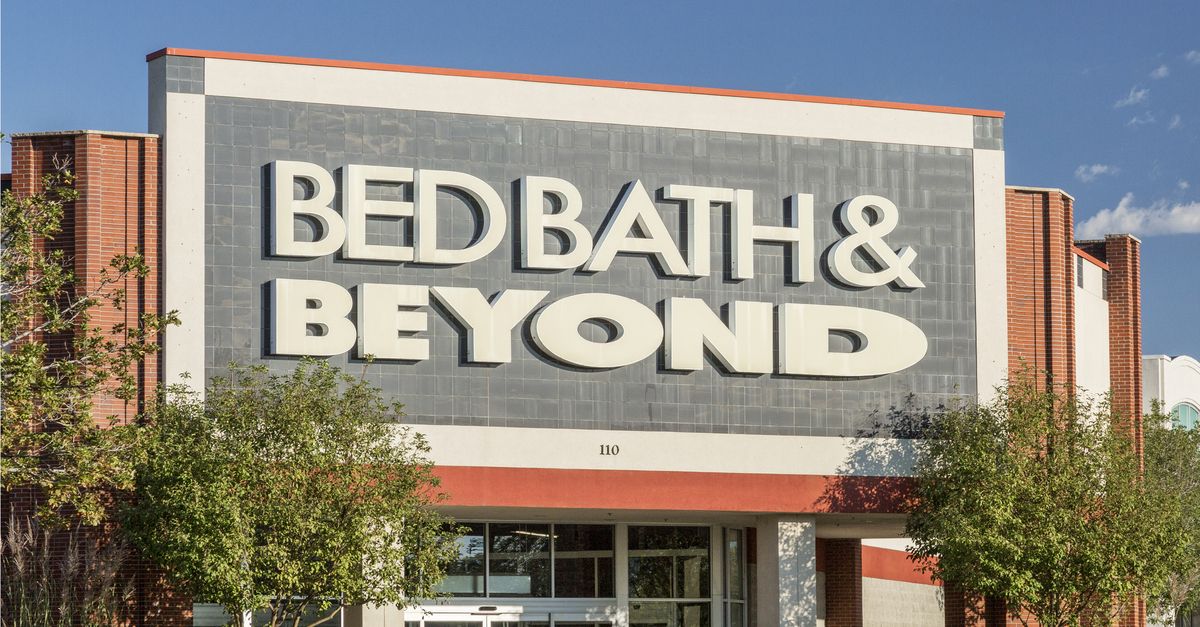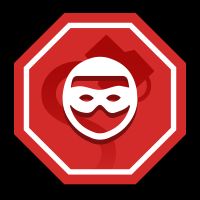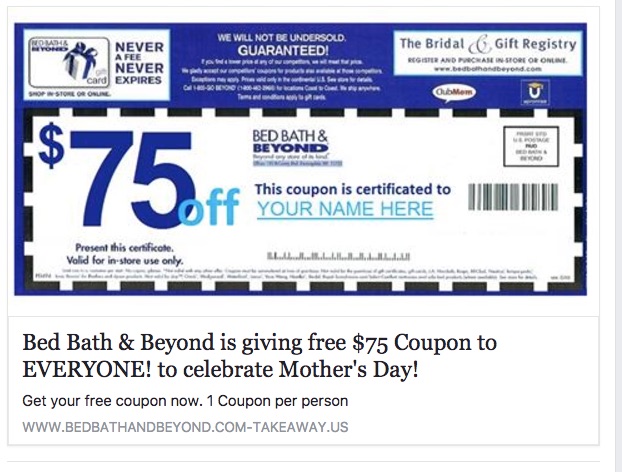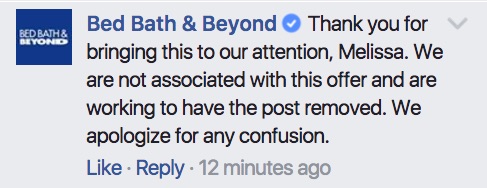In April 2017, a Bed Bath & Beyond coupon offer (purportedly good for $75 off any purchase) began circulating on Facebook under the guise of a Mother's Day promotion:
The "coupon" displays a domain name not part of the chain's legitimate web site, and the link takes Facebook users to a fraudulent web site posing as part of Bed Bath & Beyond, and instructs them to follow a simple set of instructions: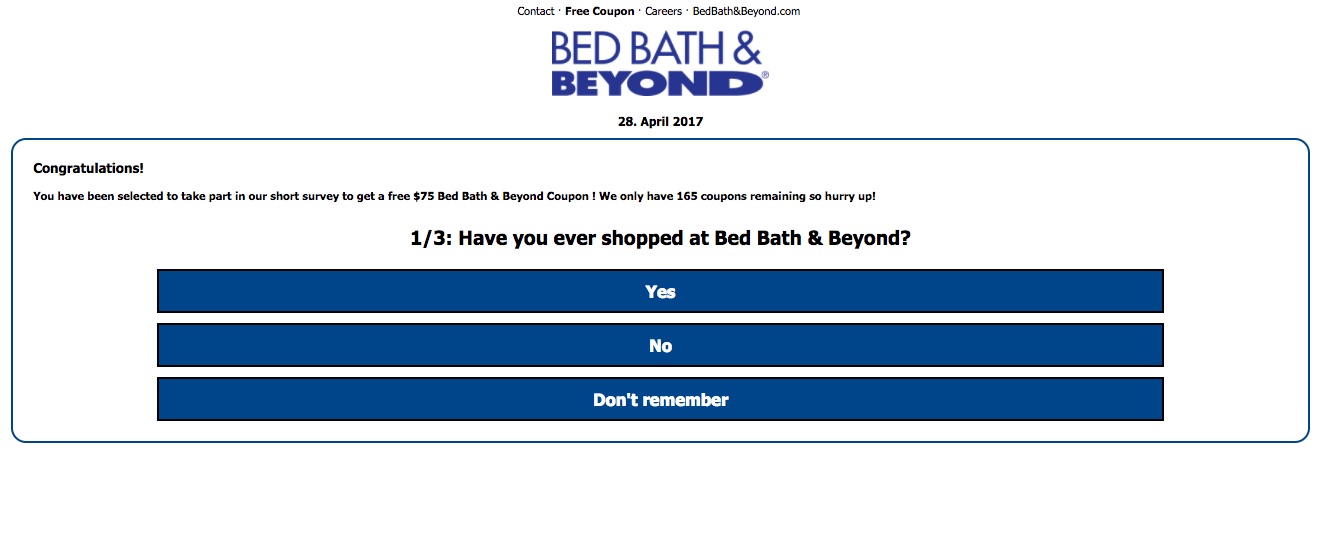 Bed Bath & Beyond warned customers about the circulating phony discount in responses on their Facebook page:
Bed Bath & Beyond warned customers about the circulating phony discount in responses on their Facebook page:
This scam is almost exactly the same as earlier schemes targeting Home Depot, Costco, Amazon, and Kroger shoppers. Although the scams exhibited minor variations, they all feature three main identifiers.
All require Facebook users to forward the phony coupon on to their Facebook friends, increasing the number of potential victims. They also instruct targets to complete out a simple survey and promise an outsized reward for a minor effort, a seemingly harmless task that often mines sensitive information such as e-mail addresses, telephone numbers, dates of birth and credit card details.
Finally, the completion of the "survey" never results in the receipt of a coupon for Bed Bath & Beyond (or any other known brand appropriated by scammers). Often, the ruse results in a subscription for difficult-to-cancel “Reward Offers,” or simply the disclosure of personal details to social media grifters. In a best-case scenario such efforts are a simple but effective like-farming scam, which can lead to embarrassment if the "liked" page is converted into an unpalatable one with risqué or rude content.
The Better Business Bureau gave these three tips to identify these particular scams on Facebook:
Don’t believe what you see. It’s easy to steal the colors, logos and header of an established organization. Scammers can also make links look like they lead to legitimate websites and emails appear to come from a different sender.Legitimate businesses do not ask for credit card numbers or banking information on customer surveys. If they do ask for personal information, like an address or email, be sure there’s a link to their privacy policy.
Watch out for a reward that’s too good to be true. If the survey is real, you may be entered in a drawing to win a gift card or receive a small discount off your next purchase. Few businesses can afford to give away $50 gift cards for completing a few questions.
